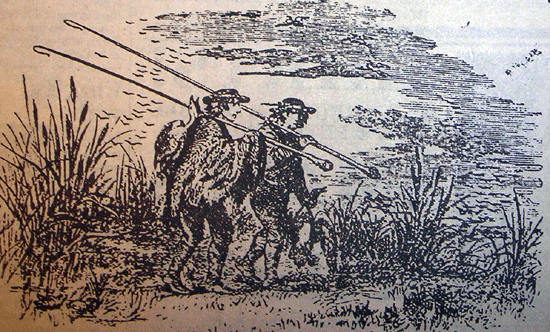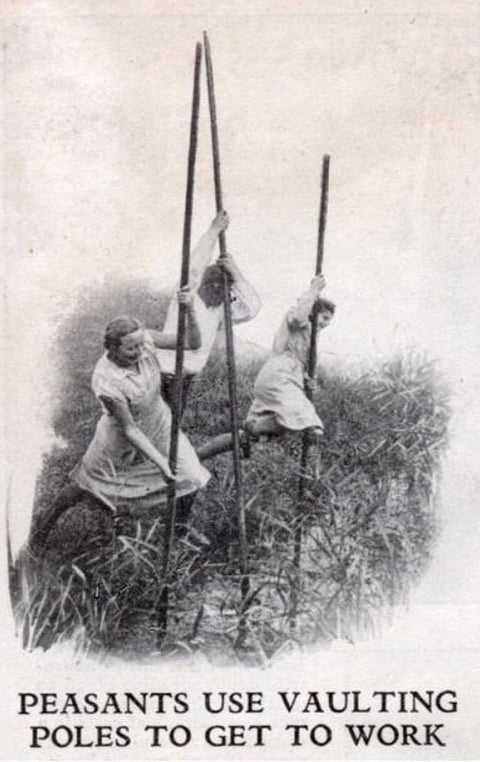The Role of Slodgers in creating the Fens
Slodgers, the hardworking inhabitants of the fens in East Anglia, led a unique way of life dictated by the challenging environment they called home. These resilient individuals were masters of the land, adapting to the ever-changing conditions of the marshy fens.
LOCAL HISTORY


“half amphibious beings who got their living by fishing and fowling”.
William Henry Wheeler in his book ‘A History of the Fens of South Lincolnshire’ (1896) goes on to describe them as;
“liv [ing] in huts, erected on the mounds scattered amongst the chain of lakes which were bordered with a thick crop of reeds, their only way of access to one another and of communication with the towns and villages near, being by small boats or canoes, which they paddled along with a pole, and also used in their fishing and fowling expeditions. These men were violently apposed to any attempts to alter the state of the fens, believing they ha a kind of vested interest in the fishing and fowling, by which they gained their scanty subsistence. Although their condition was very miserable, they never the less enjoyed a sort of wild liberty amidst the watery wastes, which they were not disposed to give up. Though they might alternatively burn and shiver with ague, and become prematurely bowed and twisted with rheumatism, still the fen was their native land, such as it was and their only source of subsistence, precious though it might be.
The Fens were their commons, on which their geese grazed. They furnished them with food, thought the finding of thereof was full of adventures and hazard. What cared the fenman for the drowning of the land? Did not the water bring them fish, and the fish attract them wild fowl, which they could snare and shoot. Thus the proposal to drain the fens and convert them into wholesome and fruitful lands, however important in national point of view, as enlarging the resources and increasing the wealth of the country, had no attraction what so ever in the eyes of the slodgers. They muttered their discontent, and everywhere met the reclaimers with opposition, and frequently assembled to fill up the cuts which the labourers had dug, and to pull down the banks which they had constructed; and to such an extent was this carried that in some places the men had frequently to work under the protection of an armed guard. But their numbers were too few, and they were too widely scattered to make any combined effort at resistance” .


Slodgers, the hardworking inhabitants of the fens in East Anglia, led a unique way of life dictated by the challenging environment they called home. These resilient individuals were masters of the land, adapting to the ever-changing conditions of the marshy fens.
Their days revolved around the intricate system of drainage and water management, as they diligently maintained the pumps and sluices that prevented their beloved land from succumbing to the relentless waters.
Steadfast and resourceful, slodgers developed specialized skills in agriculture and fishing, utilizing their knowledge of the fenland to cultivate crops and catch fish. Their cottages, built on stilts, stood as a testament to their ingenuity and determination to coexist with nature.
Despite the hardships, the slodgers cherished their strong community bond, coming together to celebrate festivals and support one another through the harsh realities of fen life.